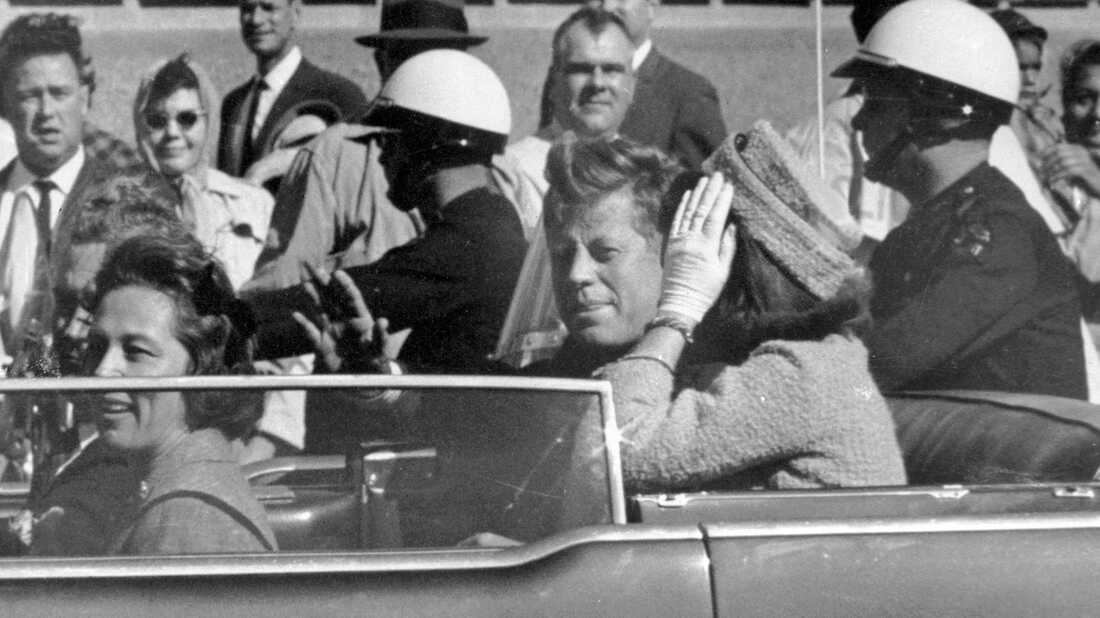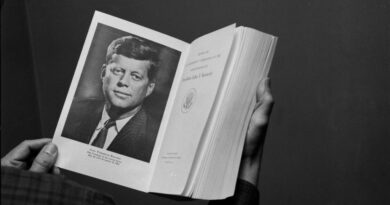Government releases thousands more documents on JFK assassination

President John F. Kennedy and first lady Jacqueline Kennedy ride in the car in a motorcade in Dallas. Jim Altgens/AP hide caption
toggle caption
Jim Altgens/AP

President John F. Kennedy and first lady Jacqueline Kennedy ride in the car in a motorcade in Dallas.
Jim Altgens/AP
The National Archives has released the latest trove of government documents relating to President John F. Kennedy’s assassination just over 58 years ago.
Nearly 1,500 newly released documents are available on the Archive’s website here. They contain many memos from FBI and other officials’ meetings with informants, mostly of interest to historians and researchers. But no evidence is expected to emerge that would put in doubt the conclusion of the Warren Commission’s report that Lee Harvey Oswald was the lone gunman in Dallas in November 1963.
They were released under the John F. Kennedy Assassination Records Collection Act, enacted by Congress in 1992, after Oliver Stone’s movie JFK raised new interest in Kennedy’s killing and launched anew a spate of conspiracy theories that Oswald did not act alone.
The entire collection of documents were to be opened by 2017, but then-President Donald Trump delayed the release of many, saying that some agencies told him that “certain information should continue to be redacted because of national security, law enforcement, and foreign affairs concerns. I have no choice – today – but to accept those redactions rather than allow potentially irreversible harm to our Nation’s security.”
In October, Biden took similar action, issuing a statement that the Archives should release documents “that agencies have not proposed for continued postponement” this Dec. 15th, and that the government give agencies another year to review those they wish to continue to hold back. According to the Archives, the pandemic has had a “significant impact” on some agencies’ ability to review documents.
It’s not clear what national security or other considerations remain nearly six decades after Kennedy’s assassination. The archives says some 250,000 records have been made available, constituting 90 percent of its’ collection.



